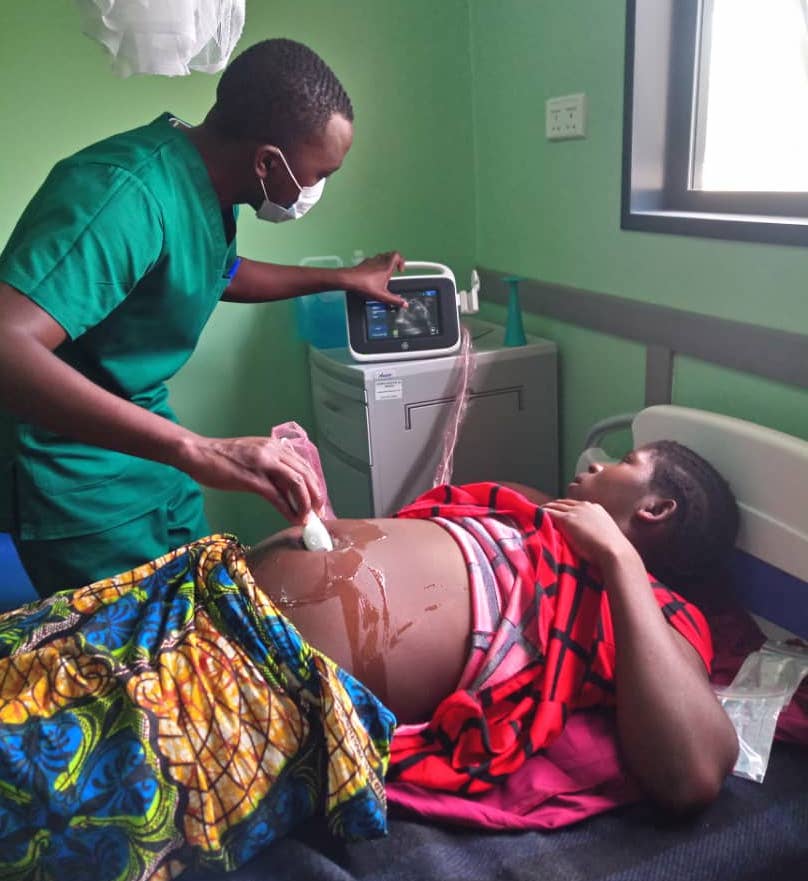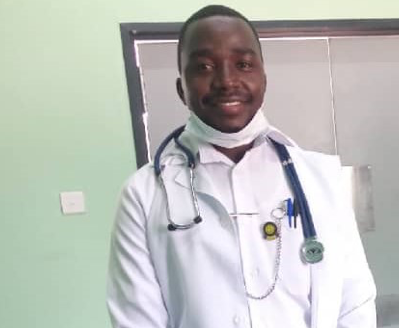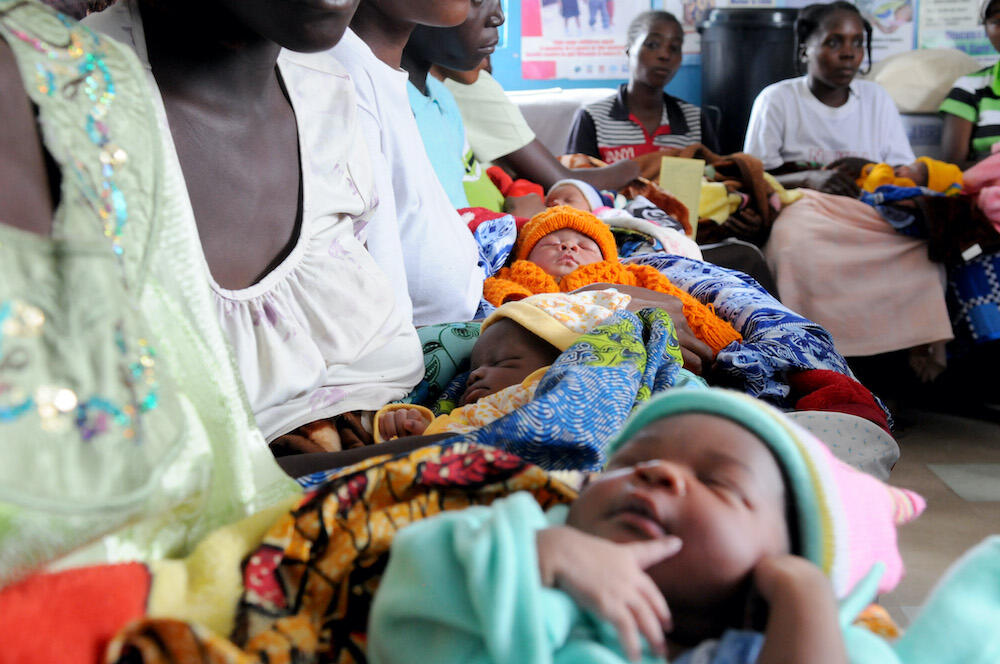SIOMA DISTRICT, Western Province, Zambia—When Moses Nkosi fell ill and was taken to hospital as a child, he was inspired by the health workers who attended him to follow in their footsteps. Achieving this dream was not easy, yet the challenges he faced may have helped prepare him to tackle the difficult time ahead for mothers-to-be in his community during the COVID-19 pandemic.
Born and raised in rural eastern Zambia in a family of seven children, the social and economic challenges facing him did not deter him from pursuing his ambition of a career in health. Today, Moses has achieved his lifelong goal – he is saving lives in rural western Zambia as a midwife.
We experienced low antenatal turn up and coverage as many women avoided coming for antenatal care services in fear of contracting the virus.

During a UNFPA humanitarian mission to Sioma District, Moses described his experience of how the pandemic has affected health service delivery in his duty station, which covers a population of more than 7,000.
“We experienced low antenatal turn up and coverage as many women avoided coming for antenatal care services in fear of contracting the virus. We also experienced low institutional deliveries as well as high rates of unsafe abortion,” he said.
Turning a dire situation around
Concerned about the impact of this refusal to seek health services on pregnant women’s health, Moses became involved in interventions that sought to reverse the situation in his community. He took on the extra responsibility of raising awareness in the community and held meetings with important partners and key leaders to turn the situation around.
“I have had several meetings with the traditional leaders to lobby for their involvement, to make sure that no woman delivers at home. In my monthly outreach, I have also spent time reaching out to at least 40 women in each of the five satellite health posts on the dangers of starting antenatal late, of home delivery, and of using traditional oxytocin,” he said.
I have had several meetings with the traditional leaders to lobby for their involvement, to make sure that no woman delivers at home.

In combination with other interventions, the result of his action has been a notable improvement in perceptions and health-seeking behaviour in his community, with more women and girls now seeking these important services from health facilities.
Midwives play a central role in the provision of quality health care, especially during pandemics and other humanitarian situations. Moses’s inspiring story is one of many among the dedicated frontline health workers who, despite being at risk themselves, continue to save lives in some of the most hard-to-reach communities.
UNFPA in Zambia is supporting the Government of Zambia as part of the national COVID-19 response plan to ensure frontline health workers are safeguarded with essential personal protective equipment as they continue to save lives.



